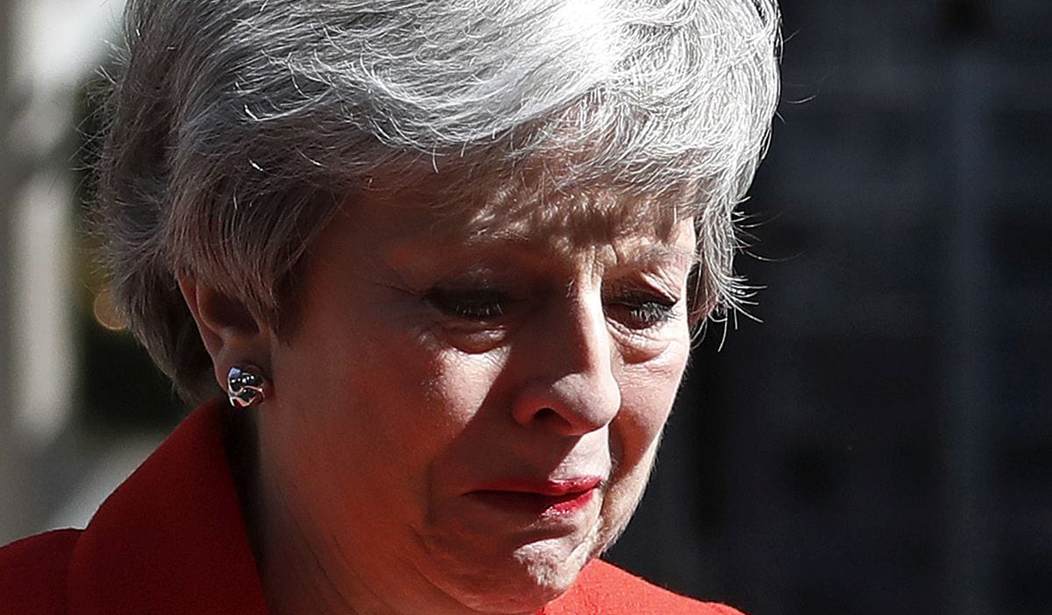British Prime Minister Theresa May announced that she was stepping down as prime minister on June 7, setting the stage for a battle royale among several conservative candidates seeking to replace her.
The long-expected announcement by May brings to a close what some analysts are saying was “one of the most tumultuous and unsuccessful premierships in modern British history.” Indeed, May’s failure to enact a plan that would lead to an orderly exit of Great Britain from the European Union will haunt her legacy far into the future.
In part, she was a victim of circumstance. Her own party was roiled by divisions between MPs wanting a “hard Brexit” that would sever almost all ties with the EU as well as the customs union, and those desiring a “soft Brexit” that would maintain most ties with rest of the continent while easing Britain into free trade agreements with individual nations.
Was it ever possible for May to bridge the gap and satisfy a majority? Most experts doubt it.
“The imperceptible and unquantifiable phenomenon of political power” had drained away, said one Tory minister who backed her until the end. “It had gone.”
Theresa May had inherited the biggest political challenge for any U.K. prime minister since 1945 — and proved unequal to the task. Personal and political shortcomings met the inescapable reality of parliamentary arithmetic, EU powerand the Irish border.
Instead of delivering Brexit and making the country work for provincial Britain, as she promised, she departs leaving an even bigger crisis than the one she inherited, with little — if anything — by way of domestic achievements to show by way of mitigation.
The tantalizing question being asked by many Tories is, would a more competent and stronger prime minister have been able to unite the Conservatives and bring Brexit to fruition? May showed a lack of energy and commitment in making Brexit a reality. She tried too hard to satisfy everyone and, in the end, not only failed utterly, but lost the respect of friend and foe alike.
What would Margaret Thatcher have done? The “Iron Lady” of British politics also faced severe challenges during her premiership, but met each of them head on and carried the rest of the country with her in the process. She, like her contemporary Ronald Reagan, succeeded because of her commitment to basic principles of leadership.
There are times when a leader must compromise to achieve a goal. But both Reagan and Thatcher knew instinctively when it was time to take sides and fight like hell for what they believed was right. Theresa May was never able to make that kind of commitment to either a hard or soft Brexit. She tried to please the hardliners, the moderates, and the EU bureaucrats in Brussels all at once and ended up pleasing no one and was cast aside ignominiously.
The future of Brexit is cloudy. There is no doubt Great Britain will leave the EU. But how they do it and how it will affect the British economy and the nation’s relations with other EU members will have to be determined by the next prime minister.










Join the conversation as a VIP Member